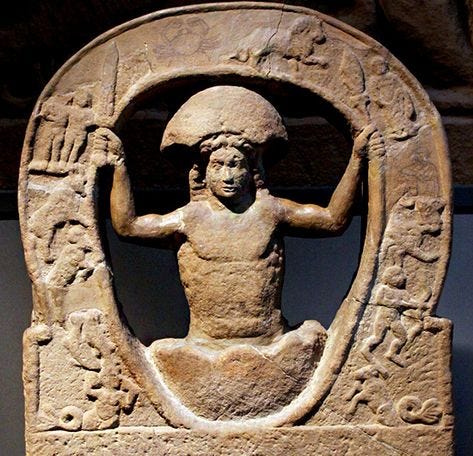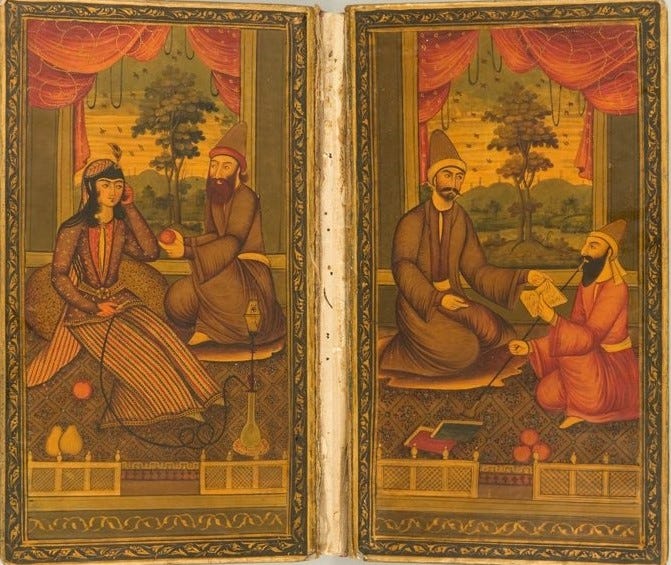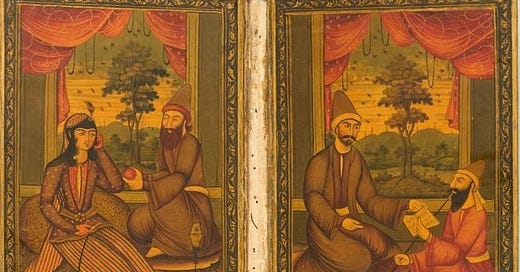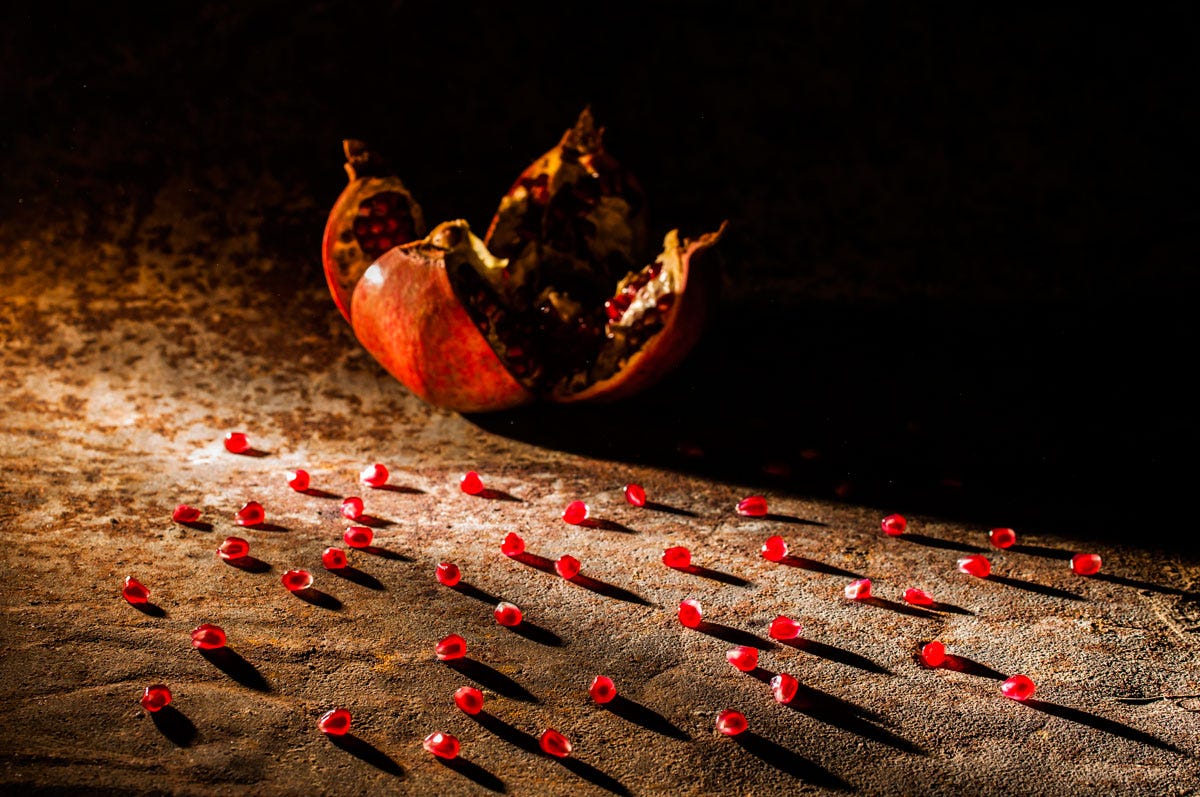Every year, the 24 hours that stretch between earth’s shortest day and longest night are fraught with danger. For this one night, a small portal opens in the universe and lets in evil that seeks to overcome the world’s essential goodness by trying to halt the waning of darkness and the ascending lightness. It is a night of a supreme battle between good and evil for the possession of humans’ souls. For those in the Northern Hemisphere it occurs tonight, the night of the winter solstice.
Many beliefs observe the solstice, not so much as a battle but as a time to shrug off past burdens and enter a time of renewal and hope. I don’t think there’s a person around right now who doesn’t want to throw off this year and embrace even a trace of feeling revitalized and filled again with hope. Perhaps it would help if we all came together tonight: You can have your pick of all manner of rituals to follow. But the one that seems the most redeeming and personal is performed for Shab-e-Yalda, a ceremony that evolved in Iran’s Persian history from Zoroastrianism, one of the most ancient world religions and the first monotheistic belief in one God, the spiritual essence of life, and a deep certainty of humanity’s goodness.

Iranians celebrate Yalda by gathering with friends and family around a table covered in a cloth or rug long enough to cover laps to ward off the night’s chill. Pomegranates play the predominate role in feasting, surrounded by bowls of nuts, and plates of watermelon, persimmons, and sweets. They will be constantly refreshed and filled as the gathering stays up through the night to guard against the coming of evil spirits.
Anar, or pomegranate, holds specific significance to Yalda night, as it represents fertility, light, and goodness. The juicy ruby fruit of the seed symbolizes birth; the white pit represents the glow of life.
Watermelon and persimmons are also presented to immunize you.
Ajeel (nut mixture) and khoshkbar (dried fruits), symbolic of prosperity and good fortune, are also available to snack on throughout the night.—Sarah Sedaghatszdeh, Yalda Night is coming. For my Persian family, it means a return to our roots, The Dallas Morning News, December 16, 2021
So far, Yalda shares a host of customs similar to Hanukkah, Bodhi Day, the Feast of Our Lady of Guadalupe, and Christmas—lights leading us from the darkness with wishes for deliverance, rebirth, and wisdom. But none look to poetry to show the way forward as Yalda does.

The household takes down from the shelf their volume of poetry by Hafez, the most important poet in Iranian literature, his verses incandescent mediations on love and spirituality. Each guest opens the book at random and reads aloud the poem they’ve fallen upon. According to legend, Hafez’s poem will reveal to the reader what the coming year will offer.
The one I found for myself is entitled “This Union.” I see in it assuring promises of everything I want to happen next year, not just for me, but for everyone.
The Academy of American Poets offers four more examples of Hafez’s work, and a handful more are presented by Ramin Asadi, on Medium. Buy a splendid pomegranate at the market, slice it in half, and scoop the seeds into one of your prettiest bowls. As you slowly nibble a few, open a poem and see what Hafez will bring to you.



